Your environment and daily habits can play a big role in worsening asthma symptoms. Identifying and avoiding these factors as much as possible may help improve symptom control, especially if your condition is difficult to manage. Firstly, try to discover what triggers your asthma. Everyone’s asthma is different — what triggers symptoms in one person might not affect someone else.
If you know that you are going to be exposed to a usual trigger you could take extra puffs of your preventer inhaler beforehand.
Here are some common asthma triggers and ways to minimize their impact:

Active or passive smoking/vaping: Smoke irritates your upper and lower airways, worsening symptoms. You should be very strict about no smoking inside your house and other places where you spend time. If you smoke/vape, speak with your doctor about resources to help you quit. Be sure to check out this overview of useful tools to support you in quitting smoking.

Workplace irritants: occupational asthma and workplace-related asthma cause the same symptoms as regular asthma, like coughing, wheezing, and shortness of breath. These symptoms often get worse when you're exposed to things at work like fumes, dust, chemicals, or strong smells. In the beginning, you may notice that your symptoms improve when you're away from work—like on weekends or holidays.
But if the exposure continues, your asthma may become harder to control and could start reacting to other triggers like smoke or changes in the weather. The best way to prevent this is by avoiding the triggers at work. In some cases, this might mean changing jobs to protect your health.
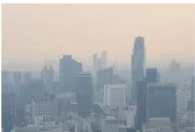
Polluted Air: Airborne particles can trigger asthma symptoms, especially indoors. Keep your home well-ventilated by opening windows regularly. This helps reduce indoor air pollution and prevents moisture build-up, which can lead to mould. When using household cleaning products, make sure to ventilate the room properly. If possible, choose unscented products or those with an Air Label certification.
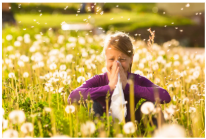
Allergens: If you’re allergic to specific triggers, it’s important to avoid or at least limit exposure as much as possible. Consider allergy-proofing your home for better symptom control. Be sure to check out this excellent guide on how to do this properly.

Alcohol: Some people with asthma, especially those who are aspirin-sensitive, notice that drinking alcohol can make their symptoms worse. Wine is the most common trigger, mainly because it contains higher levels of things like sulphites and histamine, which can affect asthma.
Drinks like wine, beer, and cider are more likely to cause problems, while others like gin or vodka may be less of an issue. It’s a good idea to avoid alcohol if it triggers your symptoms—or choose drinks carefully. Non-alcoholic options may be a safer choice—both for your asthma and your overall health. However, keep in mind that some non-alcoholic beverages can still contain sulfites and histamines, which may also provoke symptoms in sensitive individuals.

Recreational Drug Use: You can never know in advance how your body will react to drugs. With recreational drugs, there's an added risk because they are not regulated — you can’t be sure what’s really in them or how strong they are.
Recreational drugs can affect your asthma in many ways. Some can reduce your ability to breathe properly. Others may cause strong emotional reactions, which can trigger asthma symptoms. Some drugs make you feel very energetic, and this can lead to physical activity that might set off your asthma. Many other harmful effects on both your asthma and your general health have been reported. The safest way to protect your health and manage your asthma is to avoid recreational drug use altogether.
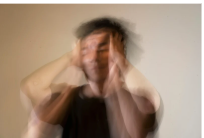
Stress and strong emotions: Stress is your body’s natural response to pressure, but it can make asthma symptoms worse. When you're stressed or feeling strong emotions, you're more likely to react to asthma triggers like weather changes or infections. High stress levels can even increase your risk of an asthma attack or hospital visit. While you can’t avoid all stress, there are ways to reduce its impact on your asthma: Stick to your treatment plan to keep your asthma under control. Practice healthy habits like good sleep, balanced meals, and stress-relief techniques such as mindfulness. Reach out for support — from loved ones, healthcare providers, or people who understand what you're going through.
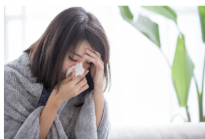
Respiratory infections: Most asthma exacerbations start in the nose with a viral cold. Practice good hygiene (frequently wash your hands, clean most used surfaces regularly) to avoid catching an infection. Wear a mask in crowded places like buses, shops, and airplanes. We recommend getting the following vaccines: influenza (flu shot), SARS-CoV-2 (COVID-19), pneumococcus, and RSV. These vaccines won’t give you the illness or trigger an asthma attack. In fact, they help protect your lungs and lower your risk of chest infections, which can make asthma symptoms worse.
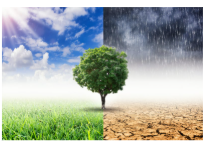
Weather changes (cold or hot weather): Cold air is a common asthma trigger for many people. You can help protect your airways by breathing through your nose, which warms and moistens the air before it reaches your lungs. Wearing a scarf or mask over your nose and mouth can also help warm the air you breathe. Even when it’s cold outside, it’s still important to ventilate your home regularly to prevent the spread of infections and reduce mould build-up.
While hot weather may be beneficial for some people with asthma, others may experience an increase in asthma symptoms. This can be due to many factors, such as the heat itself (causing tightening in the airways), exposure to pollen, air pollution, thunderstorms or being more physically active. If hot weather worsens your asthma, consider staying inside (especially if there is a thunderstorm, high pollen count/air pollution), drink plenty of water, and try to keep your living space cool.

Exercise: Most people with asthma can stay active and exercise without problems if they follow their treatment plan. If exercise triggers your asthma symptoms, it could be a sign that your asthma isn’t fully under control yet. Talk to your doctor if this happens. However, a subset of people with asthma experience symptoms during or after exercise, even when their asthma is well controlled. This is called ‘exercise-induced asthma’. Sometimes, it’s not the physical activity itself, but other triggers present during exercising, such as air pollution, pollen, dust, or chlorine in swimming pools that cause symptoms.
To help prevent symptoms during exercise: stick to your treatment plan, exercise regularly to stay fit, maintain a healthy weight, avoid or reduce exposure to other potential triggers when being active.
If your symptoms don’t improve or worsen, contact your doctor to discuss further treatment options.
By following these prevention tips, you can better manage your overall health and reduce the risk of asthma attacks.
This website does not provide medical advice.
The information, including but not limited to, text, graphics, images, and other material contained on this website is for informational purposes only. No material on this site is intended to be a substitute for professional medical advice, diagnosis, or treatment and/or medical treatment of a qualified physician or healthcare provider. EUFOREA is not a medical organisation and cannot provide specific medical advice to patients via the Internet and/or E-mail. All patients are encouraged to direct their specific questions to their personal physicians. EUFOREA presents this information to patients so that patients can understand and participate in their own medical care. EUFOREA strongly emphasises that the information contained on this website is not a substitute for thorough evaluation and treatment by a qualified healthcare provider.
© 2025 - EUFOREA - All rights reserved. All content on this portal, such as text, graphics, logos and images, is the property of EUFOREA. They may not be reproduced, copied, published, stored, modified or used in any form, online or offline, without prior written permission of EUFOREA.